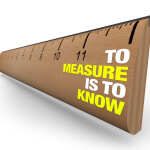 Last week I argued for case that B2B sales teams should practice their sales training with well designed, regular, disciplined and facilitated role play. But very few do. For those “best of breed” that do, what metrics should be established to determine the level of training for sales force effectiveness?
Last week I argued for case that B2B sales teams should practice their sales training with well designed, regular, disciplined and facilitated role play. But very few do. For those “best of breed” that do, what metrics should be established to determine the level of training for sales force effectiveness?
Enter … Potent and effective coaching. In the field – in real time. As the coach/manager, shadow your Sales Executive into customer visits on regular, programmed in-field coaching days. Immediately back in the car after each visit, pull out your coaching scorecard. Now of course, this scorecard should be developed off the back of the sales methodology trained and role play practiced. If you cannot design a scorecard specific enough to measure the execution of various methodology elements that have been trained and practiced then your methodology and/or your training delivery has been too fluffy. This scoring should be all about behaviour, knowledge and skill demonstration scoring. In the real world of real time customer visits. Therefore the metrics are going to be, by definition, somewhat judgmental. Therefore the scores should be graded both by you (the coach/manager) and the Sales Executive. Compare and contrast – great platform for a learning discussion. In this subjective scoring manner , these metrics should sit alongside the sales performance metrics, which will be more objective (eg sales vs budget, call rate, conversion rate et al).
Importantly, just as last week I argued that role play practice should be regular and programmed not episodic and interventionist, this week I am going to argue ditto for the sales force effectiveness training metrics.
Next week: How to develop your proxy PV models – and why you MUST!
Want to learn more? check out “How to undertake potent role play practice to increase sales force effectiveness”
